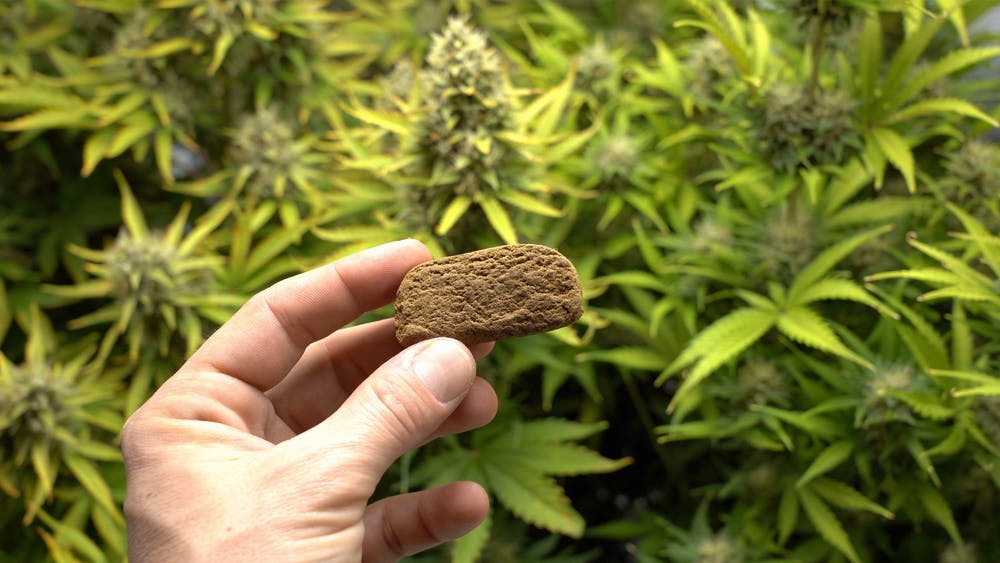Hashish Addiction Treatment
Hash, also commonly refereed to as hashish, is a drug derived from the cannabis sativa plant. Similar to marijuana, delta-9-tetrahydrocannabinol (THC) is the active ingredient in hashish. Hashish is taken from the top of female marijuana plants, which happens to contain the largest amount of THC.
Like traditional marijuana, hashish has the potential for abuse. Learn more about hashish addiction and how to seek help with treatment.

What Is Hashish?
Hash commonly comes in solid form that’s capable of being shaped into balls, cookie-like sheets or cakes, it also can be found in the form of paste. Users of hash generally consume the drug by softening the drug by heating it then proceeding to smoke it in a pipe, bong, joint, or in tobacco papers. Hash can also be ingested or baked into foods.
The drug has very similar effects to marijuana, however hash tends to be more potent than marijuana. The amount of THC contained in a single dose of hash determines the the strength and longevity of the drugs effects. Hash users typically develop a psychological dependence versus a physical dependence.
Effects Of Hashish
The use of hashish can cause the development of a series of detrimental side effects, especially to one’s physical and mental health. With prolonged use, the effects associated with using abusing or being dependent on hashish worsen.
Some of the more common short term effects associated with hashish use include:
- Increased heart rate
- Anxiety
- Increased appetite
- Impaired perception and judgement
- Lack of coordination
- Loss of concentration
- Bloodshot eyes
- Dry mouth, also referred to as “cotton mouth” for hash users
- Hallucinations
- Delusions
- Paranoia
Some of the long term effects associated with hashish abuse and dependency include:
- Altered short-term memory recall
- Increased risk for developing cancer
- Respiratory damage
- Increased risk for developing a lung infection
- Broken interpersonal relationships with friends, family, and coworkers
- Drop in performance at work and/or school
- Immune system damage
- Impaired sexual performance
Withdrawal From Hashish
Hashish addicts and abusers typically experience withdrawal symptoms when use of the drug has been significantly reduced or stopped. Symptoms typically onset within a few hours of one’s last interaction of the drug and the severity and duration of the symptoms is contingent upon the user’s frequency and longevity of use.
The usual length of the symptoms last for two to ten days, however symptoms can sometimes last as long as a month. Persons withdrawing from hashish typically suffer from more majority psychological withdrawal symptoms with minimal physical withdrawal symptoms.
Some of the common withdrawal symptoms associate with hashish include:
- Anxiety
- Loss of appetite
- Irritability
- Sleeping difficulties
- Weight loss
- Aggression
- Restlessness
- Anger
- Irritability
- Nervousness
Recognizing The Need For Hashish Addiction Treatment
There are common signs and symptoms which can help indicate whether there is a hashish addiction present within yourself or within a loved one. Being as though the effects of hashish have varying effects across users, not all users will show the same signs and symptoms.
However common signs and symptoms exhibited by hashish addicts includes:
- Loss of control over drug use
- Smelling of hash often
- Frequent bloodshot eyes
- Finding paraphernalia on person or among personal belongings
- Lack of motivation
- Altered short-term memory recall
- Isolating oneself to indulge in hashish
- Lying or stealing to obtain hashish
- keeping a stash of drugs to satisfy cravings
- Experiencing troubles at at home, work, and/or school in relation to drug use
- Failed attempts to reduce or end use
If you’re lead to believe that you or a loved one may be suffering from an addiction to hashish or simply misusing the drug, seeking the attention of a medical professional is important to ensure your safety.
Treatment For Hash/Hashish Addiction
Being as though hashish typically causes a psychological dependence, drug rehab and treatment for the condition often focuses on treating the aspect of psychological dependency. There are currently no medications which have been specifically designed to effectively treat hashish addiction. However, psychotherapeutic approaches such as psychotherapy have been found to be very effective in treating individuals recovering from an addiction to hashish.
Implementing a multitude of approaches can help aid in achieving a successful recovery from addiction. At Zinnia Health we offer a wide variety of treatment services for many addiction. If you or a loved one are in need of treatment for an addiction please feel free to enlist in our services to help you successfully overcome your drug use problem. Call us today at (855) 430-9439.

